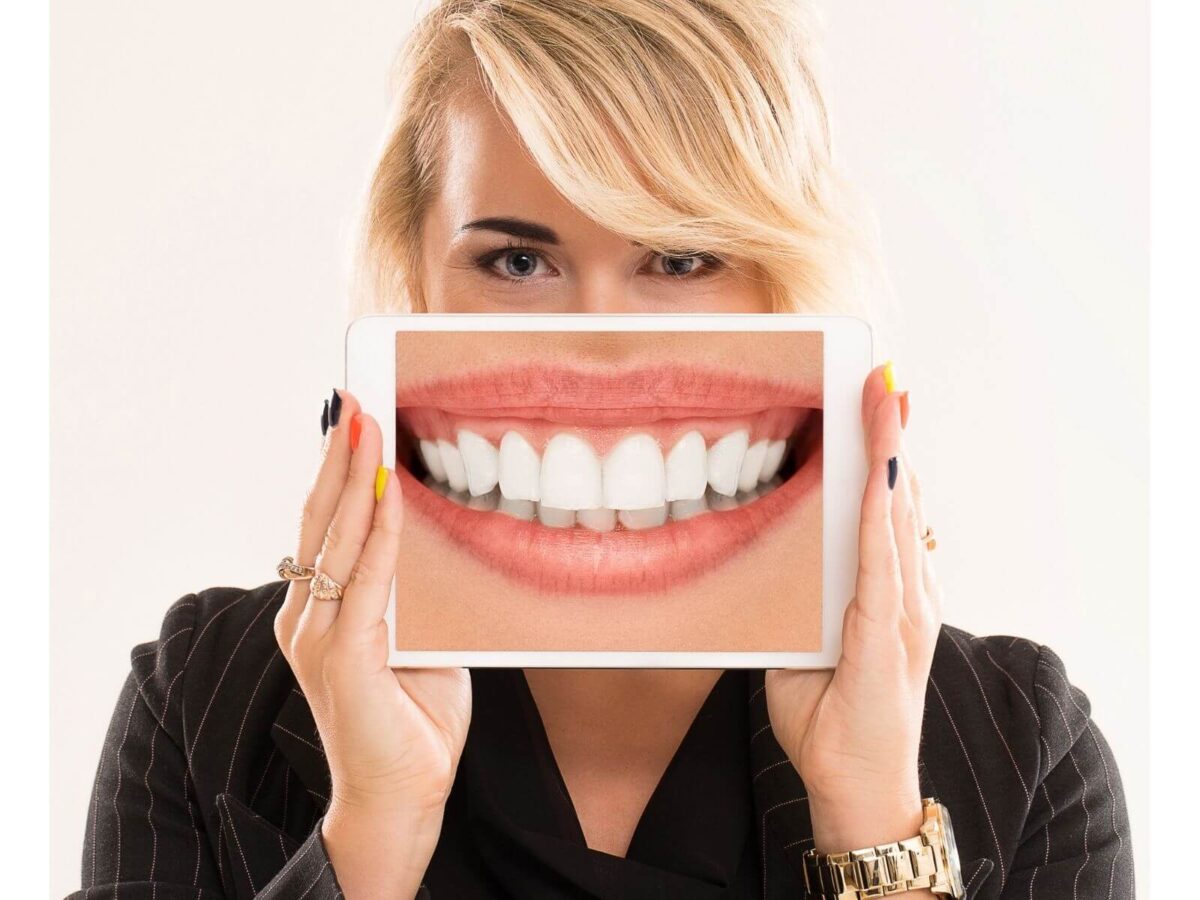Blog
Dental hygiene tips for healthy teeth & gums

What Should I Do If I Experience Severe Tooth Sensitivity After Teeth Whitening?
Teeth whitening is a safe and effective procedure. Sometimes, you can experience sensitivity after a short while. The good news is that it is only a temporary condition. However, you might find the first couple of days after the surgery uncomfortable. Luckily, there are measures that one can take so that he or she does not have this sensitivity after the teeth whitening process.
Why Do Sensitive Teeth Occur After Whitening?
Most people go for this treatment because of the discoloration caused by staining, among other things. This discoloration can happen after consuming coffee, tea, wine, or cigarette smoking. Some varieties of medication may even lead to this effect. However, both at-counter whitening agents and professional treatments can lead to sensitivity.
Teeth have three layers:
- Enamel – The body of a crown that forms the surface layer.
- Dentin – The middle layer is considered to be more complex than bone.
- Dentine – It is beneath the enamel but above the pulp and does not have blood vessels.
When whitening treatments lead to sensitivity, this is due to a component found in the whitening treatment solutions. Pulp inflammation is observed in all types of tooth bleaching due to peroxide exposure; however, High carbamide and hydrogen peroxide concentrations are the most sensitive.
If you have sore or sensitive gums after using a home bleaching method, discomfort may come from your gums rather than your teeth. Do-it-yourself kits mostly include gel trays that inflame the gum if the tray is not well-fitted or when the gel is improper.
What to Do After Teeth Whitening
Taking the following steps after your procedure will help you shorten the duration and intensity of any tooth sensitivity you experience:
- Don’t take anything hot or cold – Your teeth may be tender to biting or chewing for 1-2 days after treatment. It is also important not to consume food and drinks that are either too hot or too cold at this time. Instead, select your foods and beverages to be served at room temperature.
- Reduce your intake of acidic foods – Sodas and citrus products cause sensitivity to people because they irritate your mouth.
- Go on to use a desensitizing toothpaste – Using a desensitizing toothpaste and/or applying a desensitizing gel to your teeth for the first 48 hours after your whitening procedure should help you manage any sensitivity you might feel.
- Brush the teeth softly – Using a soft toothbrush and rinsing with lukewarm water will help avoid sensitivity.
- Use of Fluoride Products – Ordinary toothpaste and most mouthwashes contain fluorides that can help remineralize teeth and suppress the nerve’s ability to transmit pain.
- Nostrum effect – Drinking through a straw sometime after the treatment will ensure that you do not come into direct contact with a liquid, which may be painful.
Effective Things That Can Help Reduce Teeth Sensitivity After Whitening
1. Use Hydroxyapatite Toothpaste
To avoid tooth pain during whitening, a toothpaste, including hydroxyapatite, treats sensitivity. These toothpastes have natural elements that help create a protective layer around your teeth. This barrier helps shield the nerves in your teeth from irritants that can cause aches at any given cold or hot temperature. We suggest using a sensitivity or hydroxyapatite toothpaste for at least two weeks before the whitening.
It is important to know that hydroxyapatite toothpaste could be helpful, but the changes will not happen overnight. Regarding toothpaste, please speak to your dentist about what one he thinks is best to use and how often.
2. Avoid Hot and Cold Drinks
Hot and cold drinks are not advisable after the procedure because these temperatures are likely to cause sensitivity to nerves in the teeth. Cold or hot beverages can hurt your teeth because they can make the teeth slightly expand or shrink, thus making them sensitive to anything you touch with your tongue.
This is why it is advised that you should avoid these drinks whenever possible if you have sensitive teeth due to teeth whitening. The dentist usually advises patients to drink water at room temperature after the treatment to minimize or prevent teeth sensitivity after the whitening operation. It can also speed up the expulsion of all the residues from the teeth whitening surgery. You should take milk or herbal tea at room temperature, except water.
3. Apply a Cold Compress
You will not believe it, but a cold compress can sometimes be helpful! Low temperatures can only give a temporary solution because it will reduce inflammation. Cover an ice cube with a cloth, or use an ice bag to place it on your face or cheek for 10-15 minutes.
4. Don’t Brush Too Hard
Putting too much pressure when brushing might be painful after some teeth whitening process or while using strips to bleach your teeth. Brushing teeth harder is painful because the enamel on the teeth surface is gradually worn out.
Using proper brushing styles, such as soft brushing, is recommended. Do not cross at the back and forth of the teeth. Instead, use a circular ringing motion around the edges of the teeth. Also, gentle strokes should be used.
5. Use a Sensitivity Gel or Fluoride Varnish
Sensitivity gels are the perfect means of reducing tooth sensitivity when done with whitening tools and strips. These gels contain desensitizing substances that decrease the sensitivity of nerves in your teeth, reducing pain and discomfort.
Apply a little on your teeth for the gel and let it set. Please do not use it too often; read the directions very closely.
6. Do Not Consume Acidic Foods and Drinks
In addition, the consumption of food and drinks containing acids after teeth whitening is likely to cause teeth sensitivity. These products may wear away the outer surface of your teeth, referred to as enamel, thus making your teeth more sensitive to pain.
Lower-acid options include milk, cheese, plain yogurt, bananas, and oats. Avoid acidic foods such as chips and carbonated beverages or fruit juices, wine, or any other alcoholic beverages while opting for water or even herbal tea.
7. Apply Coconut Oil
Coconut oil is also a natural remedy that can be used to soothe sensitivity. The oil carries antibiotic characteristics that may help reduce inflammation and kill bacteria bad for the mouth.
There are few instructions on how to use it; one is oil pulling. Take one tablespoon of coconut oil and gargle it for 15-20 minutes. Spit it out and rinse it with warm water.
8. Using a Mouth Guard For Sensitivity
Mouth guards primarily come as a slab that guards the teeth and prevents influences such as bruxism. The following habits increase sensitivity because they place extra force on the teeth. A mouth guard will help you minimize close contact and reduce the painful symptoms associated with sensitive teeth.
Conclusion
There are different mouthguards, including the ones your dentist or the nonprescription ones make. Consult your dentist to select a mouthguard that suits your requirements.
Whitening your teeth can no longer be a painful experience for you. A nice smile is not a joke, but the right approach for the right people leaves everyone with a smile without pain. Whether you want to know more about pain after teeth whitening or seek teeth whitening treatments, Rio Bravo Dentist is at your service.


